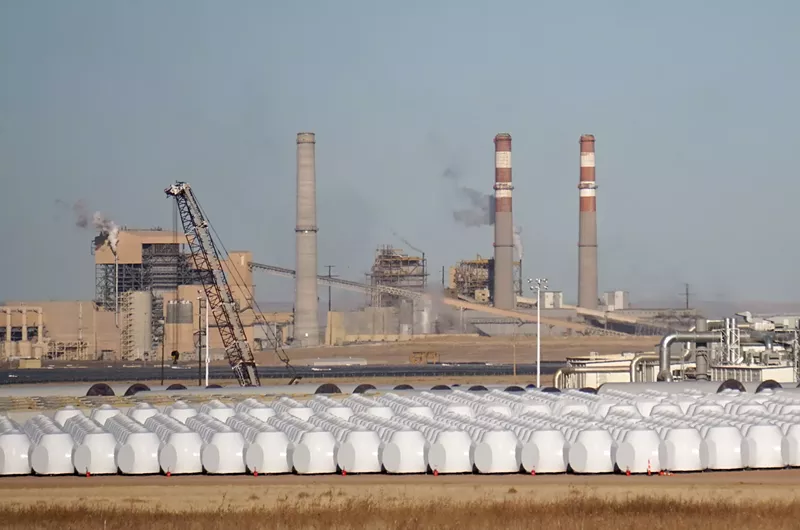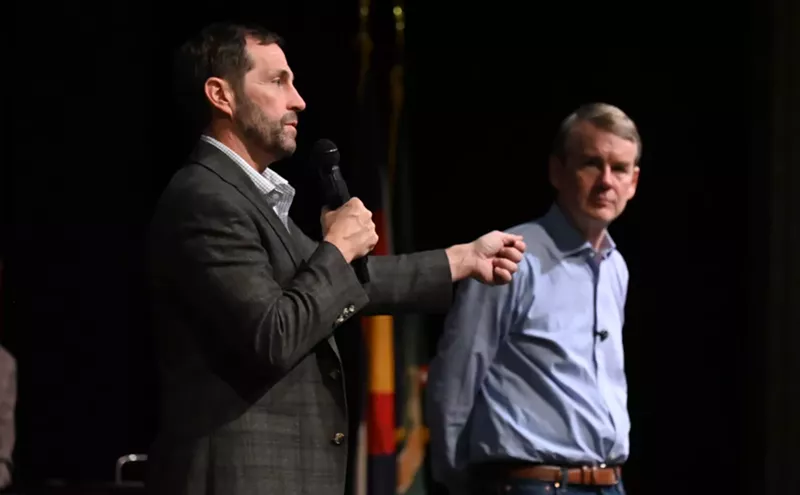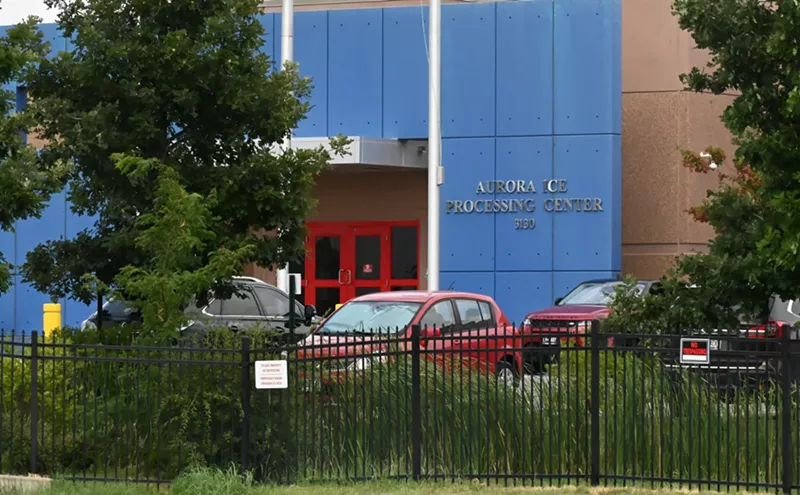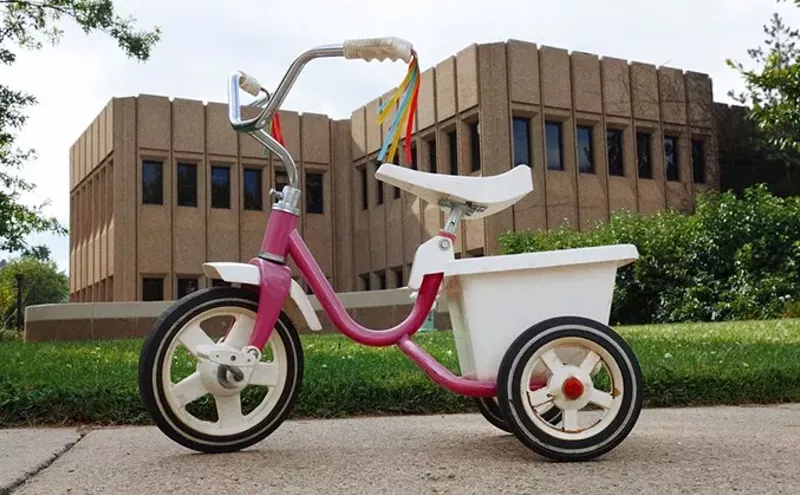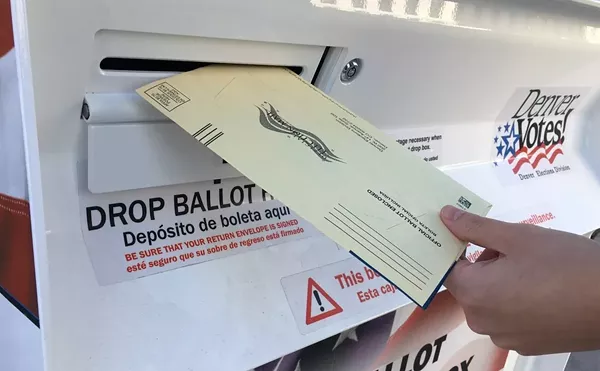Just as many Coloradans are turning on their heating systems, the Colorado Public Utilities Commission is about to rule on an Xcel Energy gas-rate case that would raise rates for consumers, as well as potentially approve a new Renewable Energy Plan, which wouldn’t.
Xcel Energy, the electric and gas utility that covers the Denver area and much of Colorado, is at a point where it must grapple with the current gas infrastructure and the high prices that come with it, as well as the transition to renewable energy on the electric grid while covering the costs of transitioning. Stuck in the middle are the customers, who will be affected by the decisions of the PUC and are often unaware of their ability to get involved in the decision-making process.
Community engagement is part of the Renewable Energy Plan, with Xcel pledging to devote over $4 million to such outreach in a settlement that the company reached with environmental justice groups over a draft of the plan. The PUC will rule on the final plan on October 19.
The new gas rate, which the PUC will determine later in October, could cause residential bills to increase by approximately 7 percent, according to an Xcel filing in which it argued that existing rates aren’t high enough to cover the cost of providing service. If approved, the rate increase would kick in on November 1.
During a September 28 hearing, the first of several where the PUC commissioners discussed and ruled on varying aspects of the gas-rate case, the three discussed the complex situation faced by the commission. Chair Eric Blank and Commissioner Megan Gilman tied the difficulty of adjudicating fair rates to clean energy laws passed by the Colorado Legislature in 2021 that require natural gas emission reductions, as well as the rising price of natural gas.
“I really look forward to the dialogue with my colleagues about how we'll strike the right balance given the extraordinary times we find ourselves in, trying to ensure we can provide the company what they need to run a safe, reliable system for those who depend on it, but also focusing on how we ensure our customers, who are already facing extraordinary cost pressures on their gas bills, are protected, to the extent possible, in both the short and long term,” Gilman said.
The person leading Xcel’s efforts in Colorado is Robert Kenney, who became president of Xcel Energy-Colorado in June. Kenney came from Pacific Gas and Electric Company in California, where he oversaw the company’s efforts with the California Public Utilities Commission; he previously served as chair of the Missouri Public Service Commission.
“The benefit of those experiences is that I'm able to see things from multiple perspectives,” Kenney says. “Part of my strength is that I'm able to translate, for the Public Utilities Commission, the utility perspective, having served on both sides of the table.”
Michael Hiatt, senior attorney with Earthjustice, which represented the environmental justice coalition in the renewable energy settlement, notes that part of what’s causing the increase in gas rates is not unique to Xcel: The price of natural gas is soaring across the country because of inflation. But the other driver is the continued reliance on fossil fuels rather than renewable energy sources.
“With wind and solar projects, there’s some inflationary pressures for how much it costs to build a wind and solar facility,” Hiatt says. “The Inflation Reduction Act, I think, is going to help keep those prices low and manageable, but at the end of the day, with wind and solar facilities, the actual fuel is free. The gas we use in gas-fired power plants that we put in our houses is not free."
Xcel recognizes that rising gas prices are impacting customers, particularly vulnerable customers, Kenney says, and the company encourages people struggling with their bills to reach out to Xcel to work out a payment plan or get connected to the state's Low-income Energy Assistance Program. He also points to the company’s tips on how to minimize energy usage to keep bills low.
The company is preparing for colder weather by ensuring that its underground storage facilities are full of natural gas in order to avoid buying it on the spot market during winter, when prices can rise exponentially. The PUC approved a temporary rider that will increase Xcel bills for 24 months for electric customers and 30 months for gas customers to cover a spike in natural gas costs from a February 2021 storm in Texas.
As Xcel grapples with gas management, it’s also working toward helping customers transition to renewable energy, as directed by the Renewable Energy Plan that, once approved, will stay in effect through 2025. The plan covers rooftop solar, community solar and battery storage programs, detailing the rebates and incentives that Xcel will provide for those who adopt renewable energy technologies.
“It's the most direct way for customers to individually participate in this clean energy transition in the way that makes the most sense for them,” Hiatt says.
Since 2004, the plan has been funded by a charge of 2 percent on customers' bills. That 2 percent was recently divided, with 1 percent now going to the Renewable Energy Plan fund and 1 percent going to coal-plant retirements. The proposed update of the plan won’t change the cost to consumers, but it will focus more on equity, ensuring that not just wealthy customers get the benefits of something into which all customers pay.
Along with the added budget for community outreach, the new plan would dedicate $32.8 million toward renewable energy programs and incentives for income-qualified customers and disproportionately impacted communities. It would also ensure that the equity programs are designed with stakeholder input.
“Xcel has done some community outreach,” Hiatt notes. “It's been, in our view, a little lacking. So there's been pieces of this, but this is a much more concerted, good-faith effort to increase the scope of equity programs, to really take that community education outreach piece more seriously and spend more time with it than they have in the past.”
Juan Madrid, clean transportation and energy policy advocate for GreenLatinos, which participated in the settlement discussions, says that Xcel’s outreach is often too technical for laypeople to understand, particularly for those whose primary language isn’t English.
“It makes it almost impossible, and it's intimidating to the non-native English speaker,” he says. “So then they tend to tune out, and then they tend to not engage. Their voice, then, is not heard, so policies are enacted without their input and without their benefit. They end up on the losing end of that policy.”
Madrid says that issues with engagement came up during settlement deliberations, and Xcel was motivated to recognize the deficiency in its outreach practices and correct them in the settlement. State agencies, including the PUC, are more concerned with environmental justice than they used to be, he adds.
According to Madrid, another challenge involves communicating about the bills themselves. Unlike with his monthly phone bill, he doesn't have a grasp of what his Xcel bill is supposed to cost, much less how to identify or correct mistakes, he says. For customers in the community he represents, part of their frustration is that the bills can be shockingly high and they don’t understand why.
“[Xcel] should be a better steward and a better player since they are the largest energy utility in the state,” Madrid says. “Be a good actor, in good faith. They have been trying, I'll give them that. They have been trying, but they need to try harder.”
While the PUC is behind the composition of energy bills, many Coloradans don’t know much about the commission and its work. “It's probably one of the most powerful state agencies that no one's ever heard of,” Kenney says. “That's how we used to describe ourselves.”
In addition to approving utility charges, the PUC will also oversee the state’s transformation toward clean energy. At the September 28 meeting, Gilman noted that there are fundamentally different concerns regarding the energy transition on the gas and electric sides of Xcel’s business.
Xcel has made itself a national leader on clean energy among utilities on the electric side, Hiatt says. But the gas side of the operation is recalcitrant, he adds, continuing to expand the gas infrastructure and passing those costs on to customers.
Along with the pending gas-rate case, which would also authorize money to build more gas infrastructure, Hiatt points to an upcoming case concerning western metro Denver, where Xcel is asking to expand the capacity of the gas system to power increased demand from new construction. Earthjustice has encouraged Xcel to consider investing in energy efficiency and electrification measures for the area instead, he says.
But Kenney sees the dual sides of the utility as a strength. “As we are thinking about reducing greenhouse gas emissions, we’re uniquely positioned, by virtue of the fact that we do run a gas business, to understand how to reduce emissions in the provision of natural gas. Also, using natural gas as a supplement to renewable energy for power generation," he says. "Having knowledge of both sides of the business is very beneficial to our customers.”
He says he's excited to lead clean energy efforts, including adding 6,900 megawatts of new clean energy resources, decommissioning the Comanche coal plant, the last coal-powered plant in Colorado, and adding new transmission lines for renewable energy resources.
“We are integral components of the community,” Kenney says. “One of my goals is to strengthen and deepen our relationships with our communities, and to make sure that our story is being told. In addition to really leading the clean energy transition — the work that we're doing to reduce methane emissions and bringing more renewables on the system — we’re also a significant source of good-paying jobs.”
Plus, he notes, almost everyone who works at Xcel is an Xcel customer.
And if Xcel wants to move forward productively with the community, Madrid says, it needs to work off that to build trust.
“Consumers are upset because right now in Colorado, we're getting penalized for…the polar vortex freeze in Texas. We're paying for that mistake," he says. "As ratepayers and consumers, now we have even less confidence and trust in the utility provider. ... It comes back to that communication piece.”

Audio By Carbonatix
[
{
"name": "GPT - Billboard - Slot Inline - Content - Labeled - No Desktop",
"component": "23668565",
"insertPoint": "2",
"requiredCountToDisplay": "2"
},{
"name": "STN Player - Float - Mobile Only ",
"component": "23853568",
"insertPoint": "2",
"requiredCountToDisplay": "2"
},{
"name": "Editor Picks",
"component": "17242653",
"insertPoint": "4",
"requiredCountToDisplay": "1"
},{
"name": "Inline Links",
"component": "18838239",
"insertPoint": "8th",
"startingPoint": 8,
"requiredCountToDisplay": "7",
"maxInsertions": 25
},{
"name": "GPT - 2x Rectangles Desktop, Tower on Mobile - Labeled",
"component": "24956856",
"insertPoint": "8th",
"startingPoint": 8,
"requiredCountToDisplay": "7",
"maxInsertions": 25
},{
"name": "Inline Links",
"component": "18838239",
"insertPoint": "8th",
"startingPoint": 12,
"requiredCountToDisplay": "11",
"maxInsertions": 25
},{
"name": "GPT - Leaderboard to Tower - Slot Auto-select - Labeled",
"component": "17676724",
"insertPoint": "8th",
"startingPoint": 12,
"requiredCountToDisplay": "11",
"maxInsertions": 25
}
]

